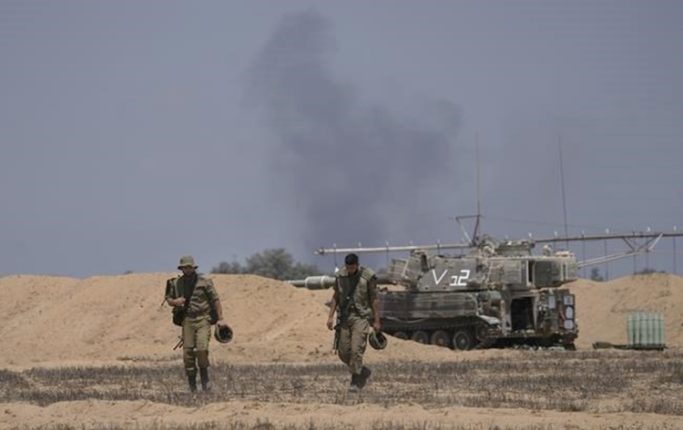Following the claim of dismantling Hamas in Khan Younis, Israel is preparing to extend its military operations towards Rafah, near the Egyptian border. Defense Minister Yoav Gallant said on Thursday that the success in Khan Younis allows Israel’s forces to advance to Rafah, addressing the southern border of the enclave.
With over half of Gaza’s 2.3 million residents seeking refuge in this region, many are enduring harsh conditions in makeshift shelters and public buildings. Gallant said, “We are achieving our missions in Khan Younis, and we will also reach Rafah and eliminate terror elements that threaten us.”
Meanwhile, Qatari and Egyptian mediators are anticipating a positive response from Hamas, which governs Gaza, regarding the proposed extended ceasefire. The agreement, reached with Israel and the U.S. during talks in Paris last week, outlines a 40-day initial phase, during which hostilities would cease, and Hamas would release remaining civilians among the over 100 hostages.
This potential prolonged pause would mark a significant development since October 7, when Hamas initiated an attack on Israel, resulting in 1,200 casualties and the capture of 253 hostages. On Thursday, health officials in Gaza reported a confirmed Palestinian death toll surpassing 27,000, with many more presumed dead beneath the rubble.
As of now, Hamas has not provided a response to the ceasefire proposal. While there was a momentary sense of optimism in Gaza following remarks by a Qatari spokesman in Washington, there has been no official response from the group.
Israeli forces continue their operations around hospitals in Khan Younis and intensify attacks near Rafah. Combat has also surged in northern areas around Gaza City, despite previous claims by Israel that these regions had been subdued weeks ago.
Amidst the ongoing conflict, appeals from the United States to ease the plight of Gaza’s civilians show limited success. In response, U.S. President Joe Biden issued an executive order targeting Jewish settlers involved in violence against Palestinians in the West Bank.
Biden is under pressure to respond to the killing of three U.S. soldiers by a drone in Jordan. The U.S. suspects the drone, causing more than 40 injuries, was manufactured by Iran. Reports suggest potential U.S. strikes in Iraq and Syria targeting “Iranian personnel and facilities.”
The U.S. military continues strikes against the Iran-aligned Houthi movement in Yemen, responding to attacks on shipping in the Red Sea, which the group claims is in solidarity with Gaza. In Yemen, the U.S. military reported hitting up to 10 drones being prepared for launch, and a U.S. Navy ship downed three Iranian-made drones and a Houthi anti-ship missile.
(Inputs from Reuters)














